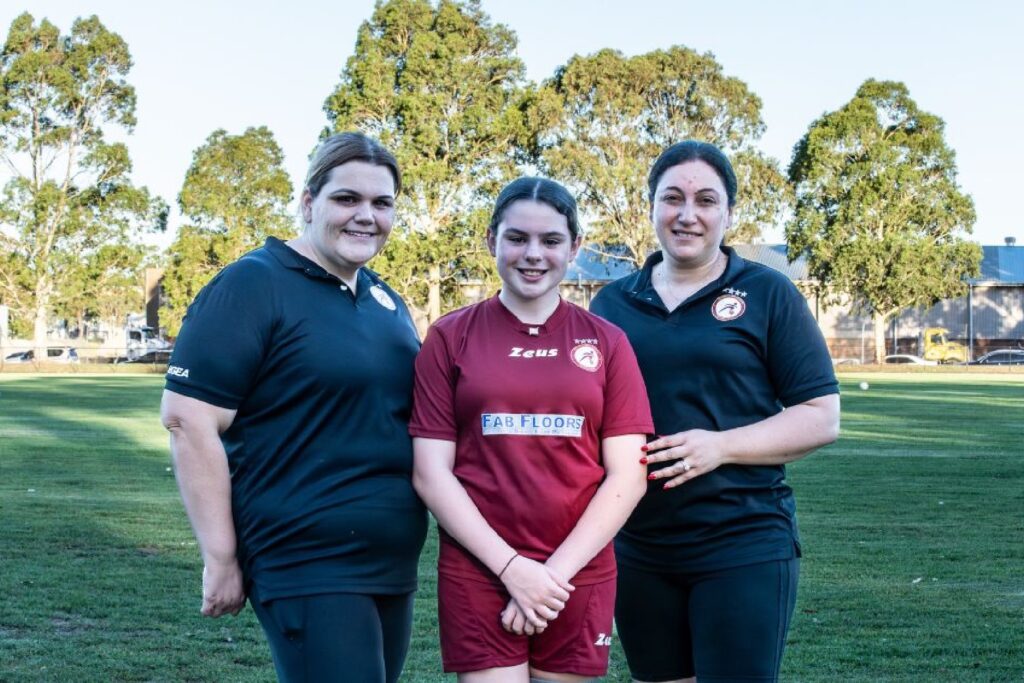
It was perhaps apt that my chat with former Matildas and now Central Coast Mariners manager Alen Stajcic was interrupted by an urgent call from the top brass in Gosford; such is the chaos of the times.
Stajcic agreed to chat about all things football in the present climate and the repercussions for the short and long term future of the game in Australia. I opened by asking the 46-year-old whether he held fears for the future of the game, both domestically and abroad.
Citing what he referred to as “the new normal”, Stajcic predicted considerable challenges on both landscapes as football enters a recovery period.
“It was pleasing to see most governments place health concerns over those of their economies, yet the financial implications of that will see football take a hit as well; being merely a microcosm of the world,” he said.
Rather astutely, Stajcic pointed out that, “At times like this it is the vulnerable and weak that will be exposed”. Once again referring not only to our communities, but also to the precarious financial position in which Australian football now finds itself.
I probed the former Sydney FC W-League manager as to the ramifications for the women’s top tier. He referred to the $16344 minimum wage and a likely decrease to it; in line with what their A-League counterparts will no doubt experience.
Stajcic recalled the early days of the league when “W-League clubs were primarily funded by the federations”. When the clubs themselves took over the funding and administrative arms in subsequent years, their reliance on broadcasting revenue became as paramount as that of the A-League competition.
Hence, with the existing broadcast deal between FFA and Foxtel seeming insecure and likely to be reshaped, Stajcic sees the immediate impact on both leagues as “significant and potentially life changing” for many players, coaches and staff.
I asked whether there could be something of a silver lining in international football, with a potential correction of wages that have spiralled to absurd levels in recent times. Whilst in notional agreement in regards to the EPL, LaLiga, Serie A and other major leagues, he also expressed a concern that a hypothetical 20 per cent correction could have disastrous implications for the A-League. Stajcic was adamant of the importance in “sustaining full-time professionalism in Australia.”
With many ex-Socceroos currently throwing their hat into the opinion ring and FFA convening the rather aptly named think tank, Starting IX, I quizzed Stajcic on the past. I wanted to know whether he felt the added weight currently being given to past players’ views was a help, or in fact a hindrance to the financial and structural challenges that lay ahead.
Stajcic was clear and categorical in his response, citing dangerous appointments of the past, where non-footballing executives were frequently appointed to prominent positions at FFA. He is hopeful for and thankful that James Johnson has taken the reigns and was clear in his desire for the governing body to emanate a “clear football voice with football people making the decisions that impact the game.”
According to Stajcic, a sticking point in the domestic game lies in the pathways to the elite level. “The pathways for young and promising players were far better in the NSL days. Outcomes are a direct result of those pathways.”
No doubt, that issue may well be placed on the back burner for the short term future, as Johnson and his board attempt to navigate their way through the mess that is COVID-19. However, Stajcic sees it as vital if Australia is to begin producing a greater array of elite level professionals, capable of playing in the world’s top leagues.
With the A-League eyeing a month long feast of football in August, I asked Stajcic how he would approach preparing his squad with fitness levels and continuity serious considerations.
“Due to the restrictions we have had in Australia, I think you will find many clubs will be in different situations, depending on the access to facilities the players had and will have within their own jurisdictions. Clubs will also have different goals and objectives when we return. A club like the Mariners are obviously looking to continue the rebuild, others may do the same.”
I rounded out the interview by asking the man still heavily invested in the fortunes of the Matildas, whether the Australia/New Zealand bid for the 2023 Women’s World Cup will seem more or less attractive to FIFA in the aftermath of the pandemic.
He replied, “I’m not sure how it could seem less attractive. There is little need to develop infrastructure as our stadiums can cope comfortably with such an event and Australia does seem more advanced in its recovery from COVID, compared to Brazil, Japan and Colombia who are also bidding for the event.”
With reports from Japan suggesting the pandemic still has some way to run its full course and Brazil having tragically lost over 11,600 citizens, Colombia and Australia may now well loom as the favourites in the race.
Hopefully Stajcic is correct in his summation of the potential success of the bid and that FIFA also see the benefits of hosting a World Cup down under for the first time. It would be one of the biggest sporting events in Australia’s history; one drawing revenue, investment and interest.
All stakeholders know just how important each of those things are in the business of football, Alen Stajcic included, particularly within the uncertain financial future that football in Australia must now navigate.





















